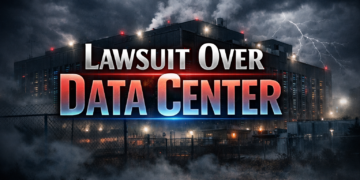Almost everyone has heard of the Sunshine Laws. However, most people aren’t aware of how these laws affect their everyday lives.
Ohio’s Sunshine Laws are divided into two sections. The first is the Ohio Open Records Law (ORC 194.43). Second, there is the Ohio Open Meetings Act (ORC 121.22).
Ohio’s Open Records Law
While seemingly inconspicuous to the average citizen, this law empowers individuals to access essential information about their community.
News-gathering agencies heavily rely on this legislation to collect vital details that they share with the public. However, any manipulation or inadequate adherence to these laws can lead to distorted perceptions and undermine informed decision-making. When records are manipulated or redacted, it obscures the truth, causing individuals to rely on inaccurate information.
The implications of such actions can be dire for average families. Manipulation, redactions, omissions, or distortions of open records can lead to false impressions, legal complications, and even health risks.
The Open Records Law in Ohio establishes the right to information as a foundational principle. However, its effectiveness depends on a clear understanding and proper enforcement.
Ohio Open Meetings Act
Public meetings must be properly documented, typically through meeting minutes, audio or video recordings, or official transcripts. These records serve as a permanent record of the proceedings and are crucial for accountability and transparency.
Citizens have the right to request access to these meeting records, as well as other documents and materials discussed or created during public meetings. This includes agendas, presentations, reports, and any other relevant information.
In Ohio, a meeting covered under the Open Meetings Act occurs when a majority of the members of a public body engage in a prearranged discussion regarding the public business of the body. For example, if there are 5 members on a board and 3 of them meet to discuss public business, it would trigger the law.
Conversations among board members, whether in person, over the phone, at restaurants, or via text messages, can be subject to the Open Meetings Act if they involve a majority of the board and pertain to public business. However, casual or social conversations that do not involve deliberations on official matters are typically exempt from the Act.
It’s essential to note that electronic communications like text messages or emails among board members discussing public business can also fall under the purview of the Open Meetings Act if they involve a majority of the board and constitute a prearranged discussion. However, incidental or administrative communications, such as scheduling logistics, may not necessarily trigger the Act.
Overall, the key determinant for the Open Meetings Act is whether a majority of the board members engage in a preplanned discussion concerning public business, regardless of the communication medium or location.
The Open Records Law and Open Meetings Act are designed to promote transparency and accountability within government. Access to public records and meetings empowers citizens to stay informed about their government.
*SCDN’s law firm assisted in the preparation of this article.






















































































